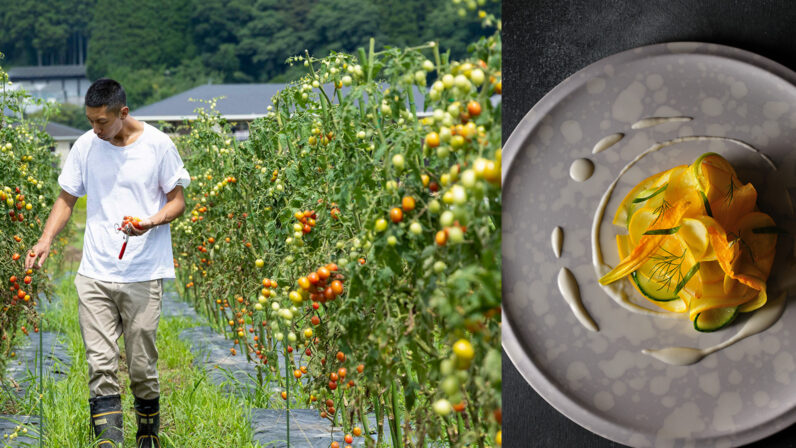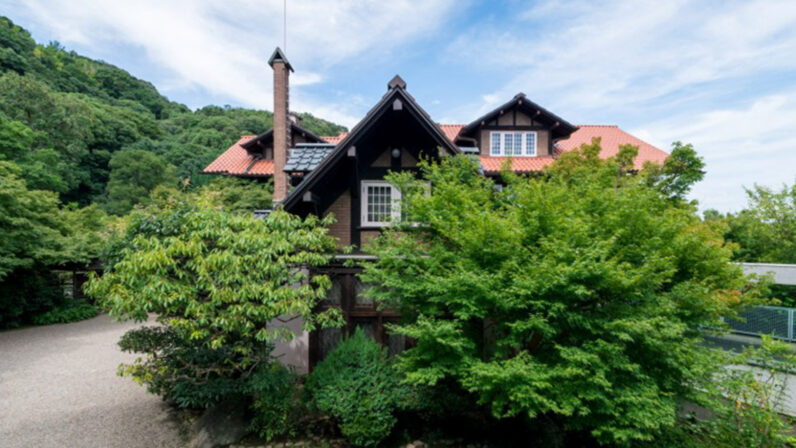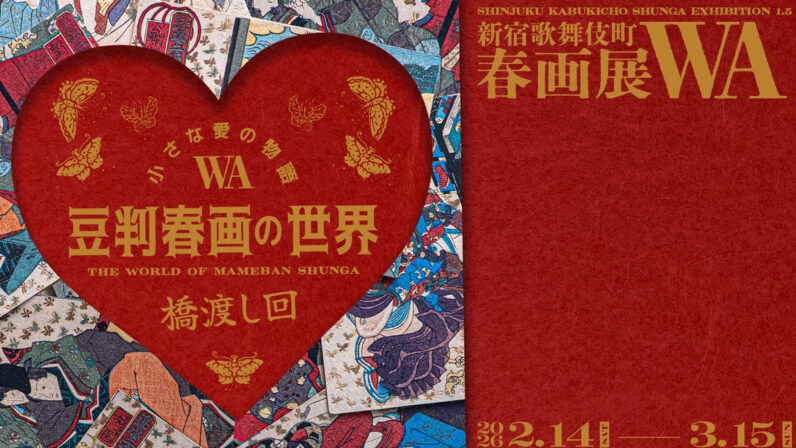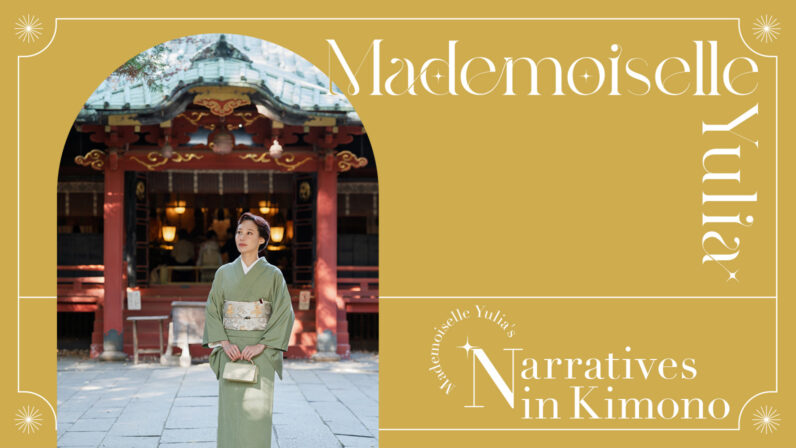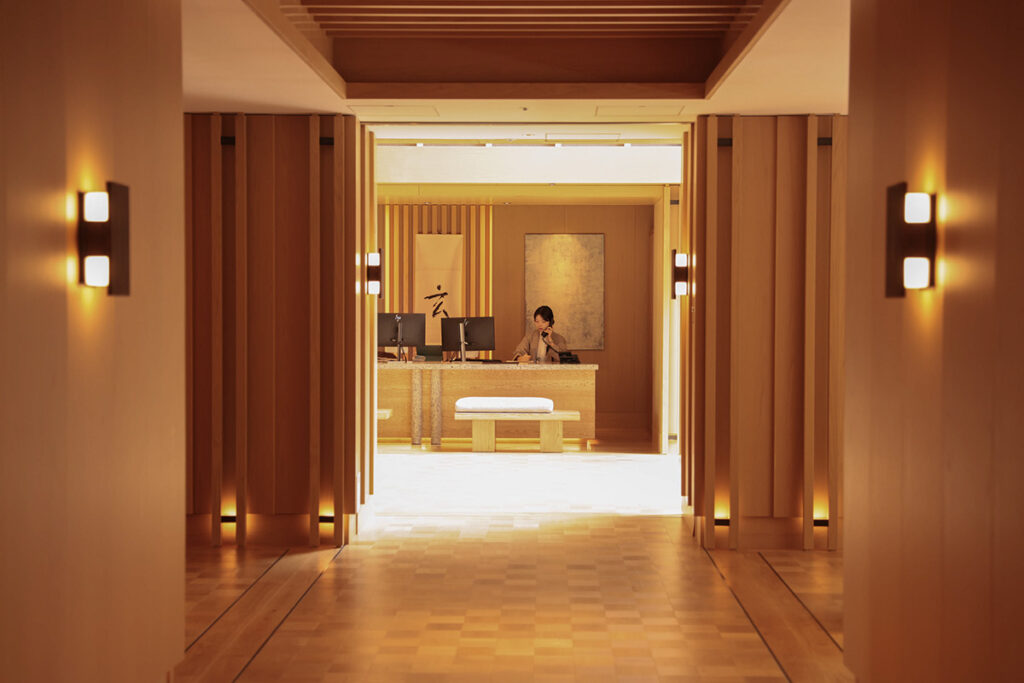
The lobby lounge welcomes you with a sense of something truly special from the moment you enter.
One of the greatest appeals of travel lies in the sense of mental clarity it brings. In Kyoto, that feeling is especially vivid, as centuries-old traditions coexist with a constant breath of freshness. The city’s culture and its people seem driven by a quiet determination to stay vibrant and pure, creating a unique serenity. The luxury hotel Banyan Tree Higashiyama Kyoto, which opened in August 2024 and hails from Singapore, captures that very essence.
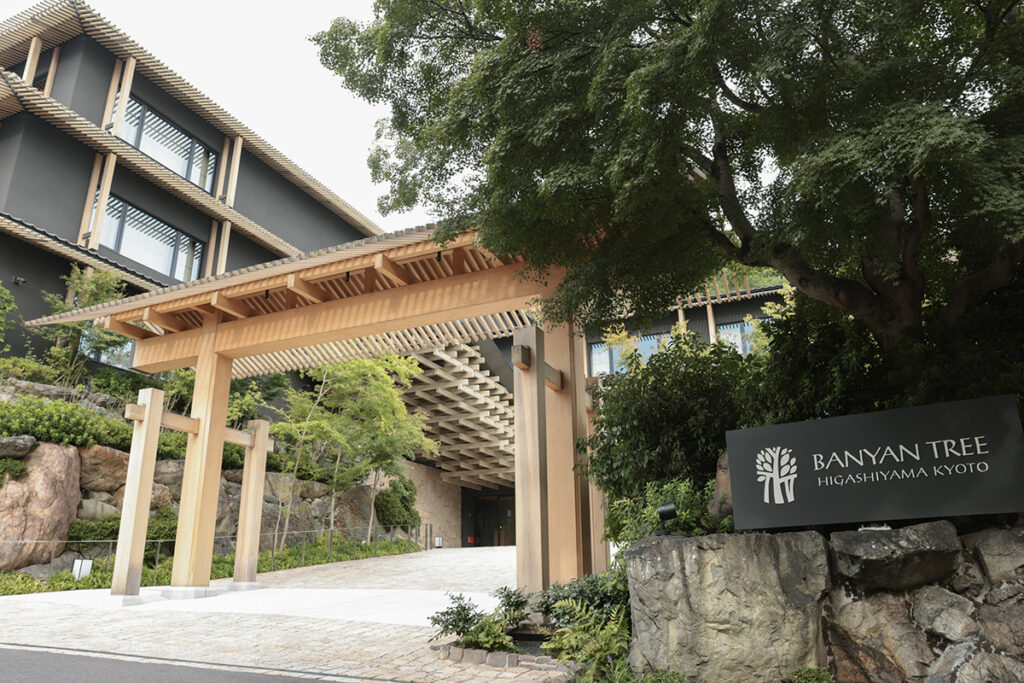
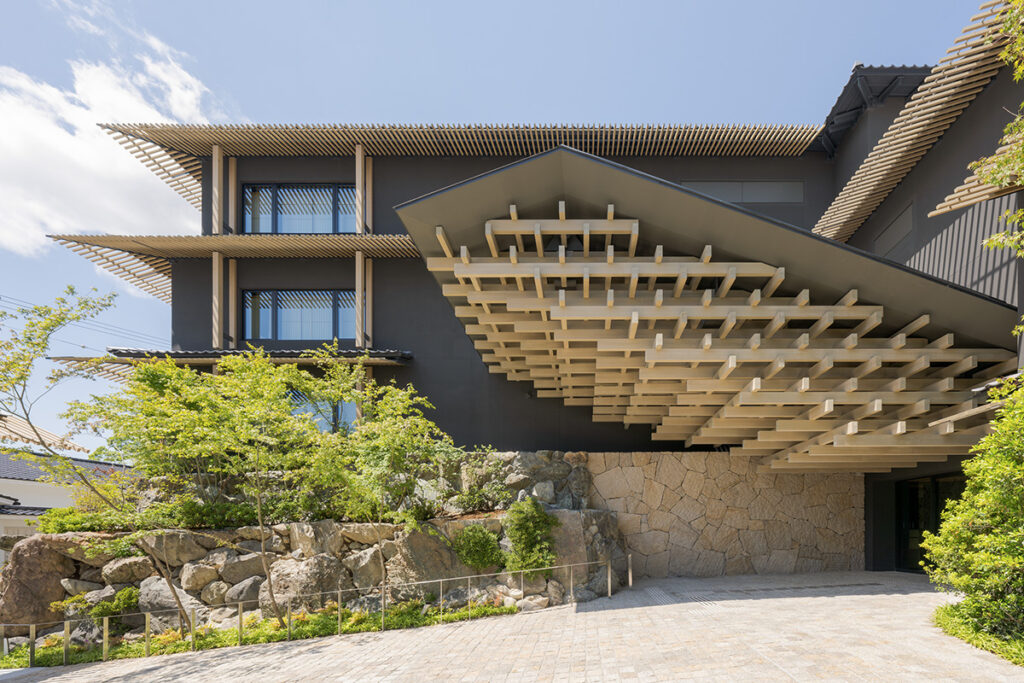
The exterior’s standout wooden features are designed by Kengo Kuma & Associates.
Ryōzen-chō, the quiet inner precinct of Higashiyama where the hotel is located, sits on a high plateau alongside Kiyomizu-dera. Although it is in an area bustling with tourists, the surroundings of the hotel are strangely imbued with a sacred, almost protected atmosphere. This site was once home to a long-established inn called Hotel Ryōzen, cherished by many distinguished guests for its natural hot spring. In homage to that legacy, the name lives on in the hotel’s on-site restaurant and bar.
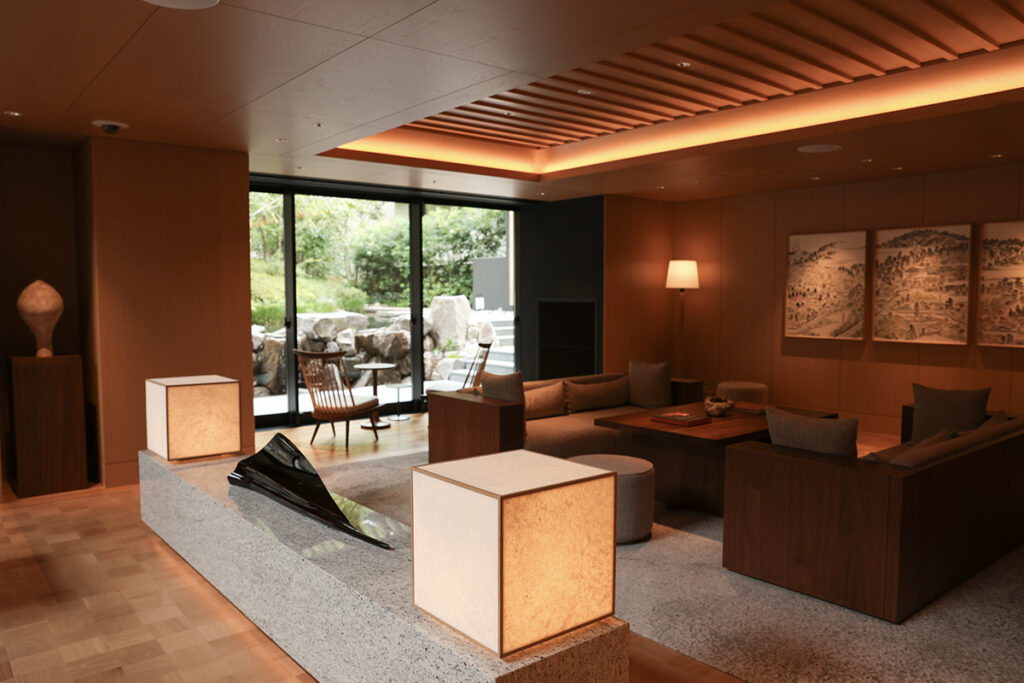
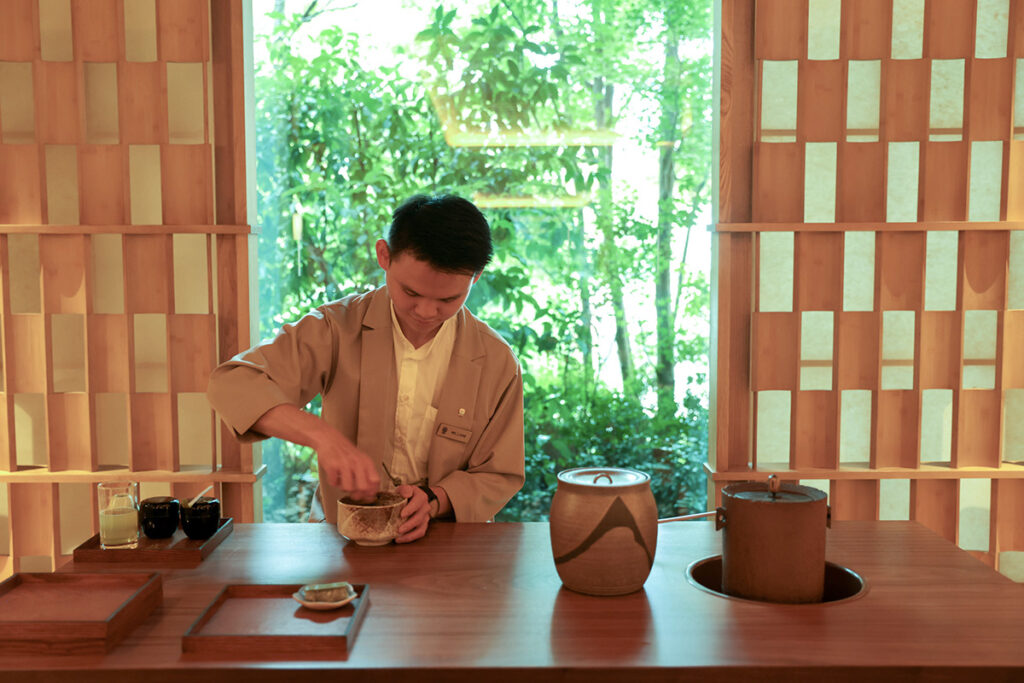
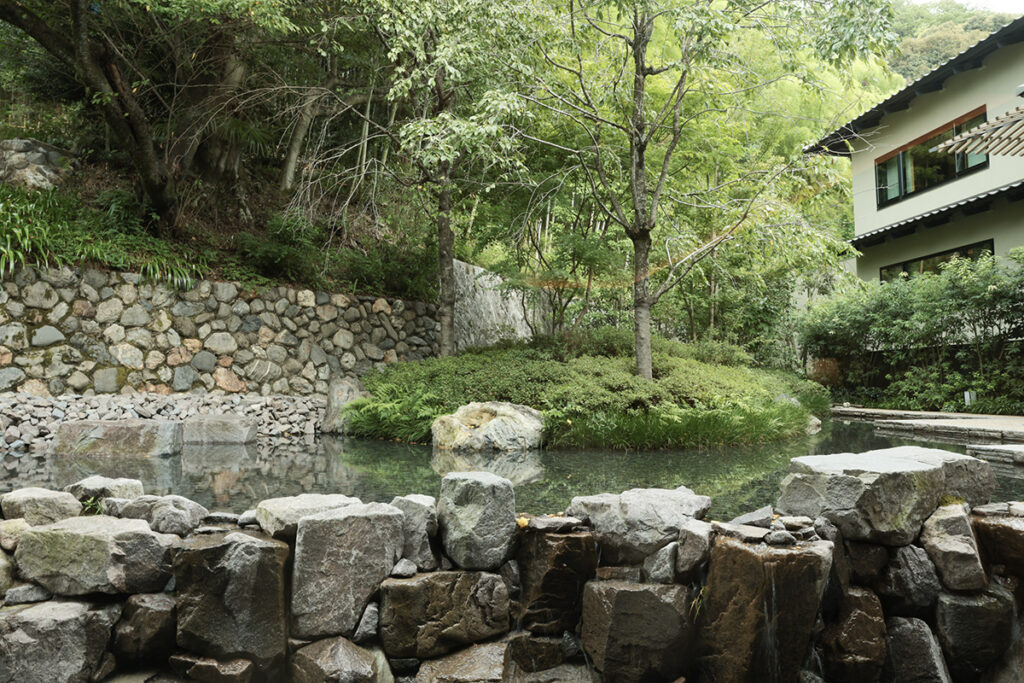
In the lobby lounge overlooking the garden, guests are welcomed with a cup of matcha. The garden combines old and new stone arrangements with trees, exuding a distinctive and enchanting charm.
The refined elegance of this historic hot spring inn also serves as an inspiration for the architecture. The grand entrance gate, eaves, and wooden louvers crafted by the design office led by world-renowned architect Kengo Kuma are made of fragrant cypress, giving the hotel a symbolic presence. The combination of ink-colored exterior walls with warm white wood softens the building’s outline and allows it to blend harmoniously into the surrounding forest.
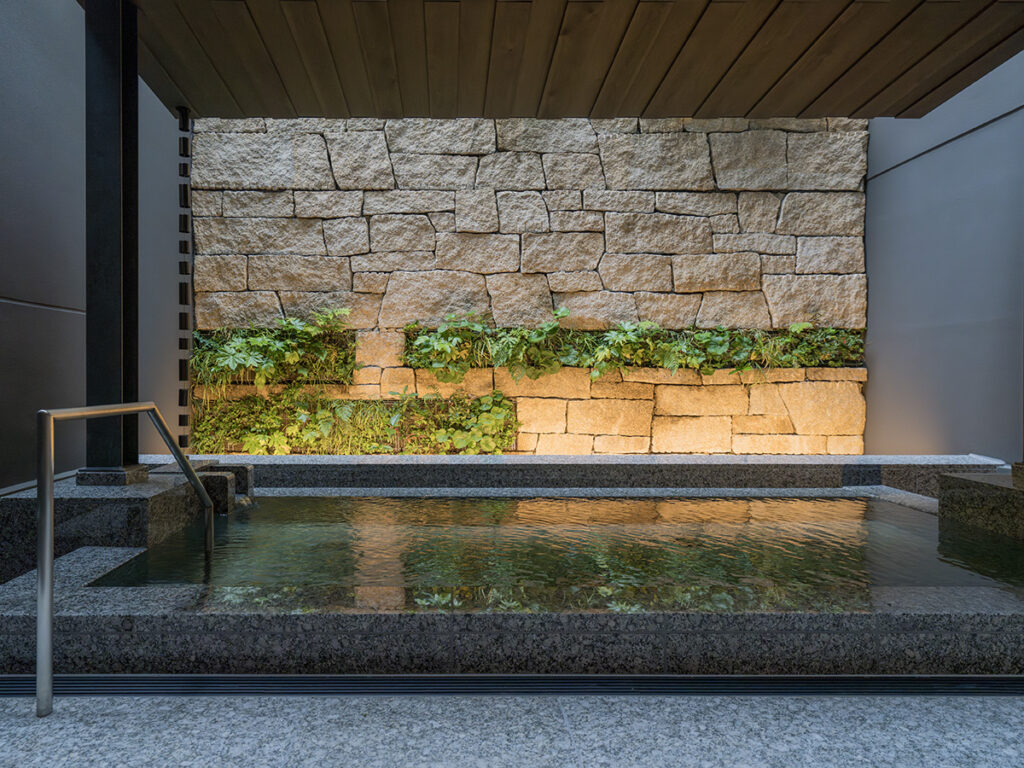
The main bath on the first floor also includes a meticulously crafted open-air bath.
The 52 guest rooms were designed by Hashimoto Yukio Design Studio, known for blending Japanese tradition with an international sensibility. At Banyan Tree Higashiyama Kyoto, their interiors make extensive use of natural materials like wood, stone, and washi paper, transforming traditional craftsmanship into contemporary design throughout.
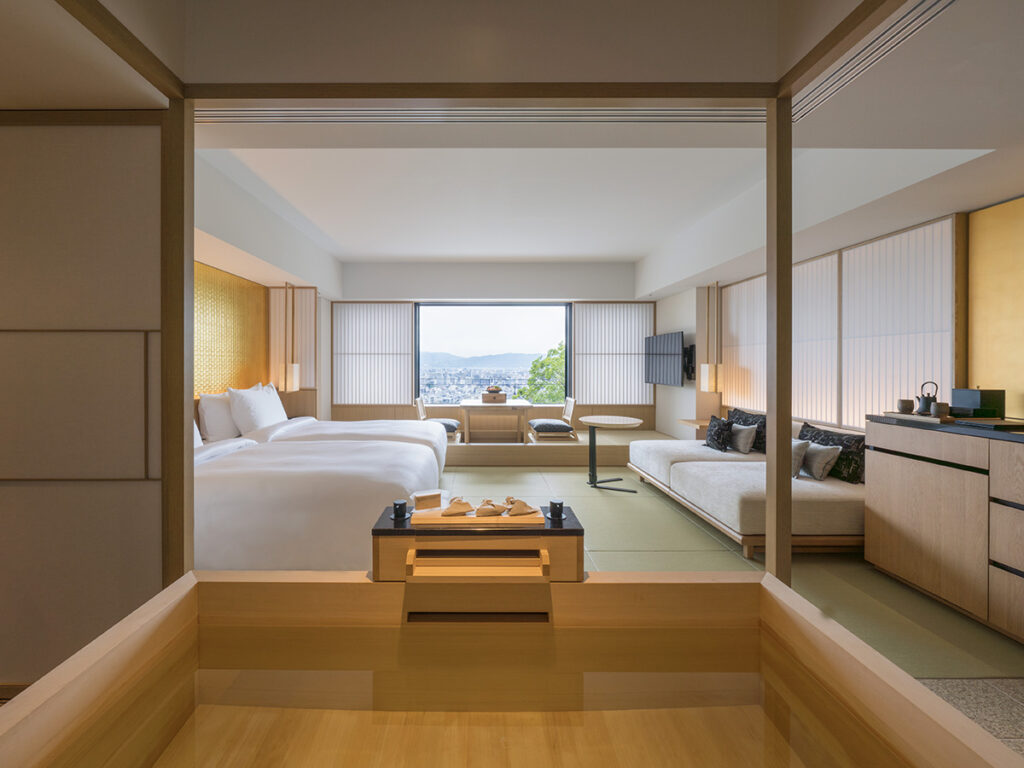
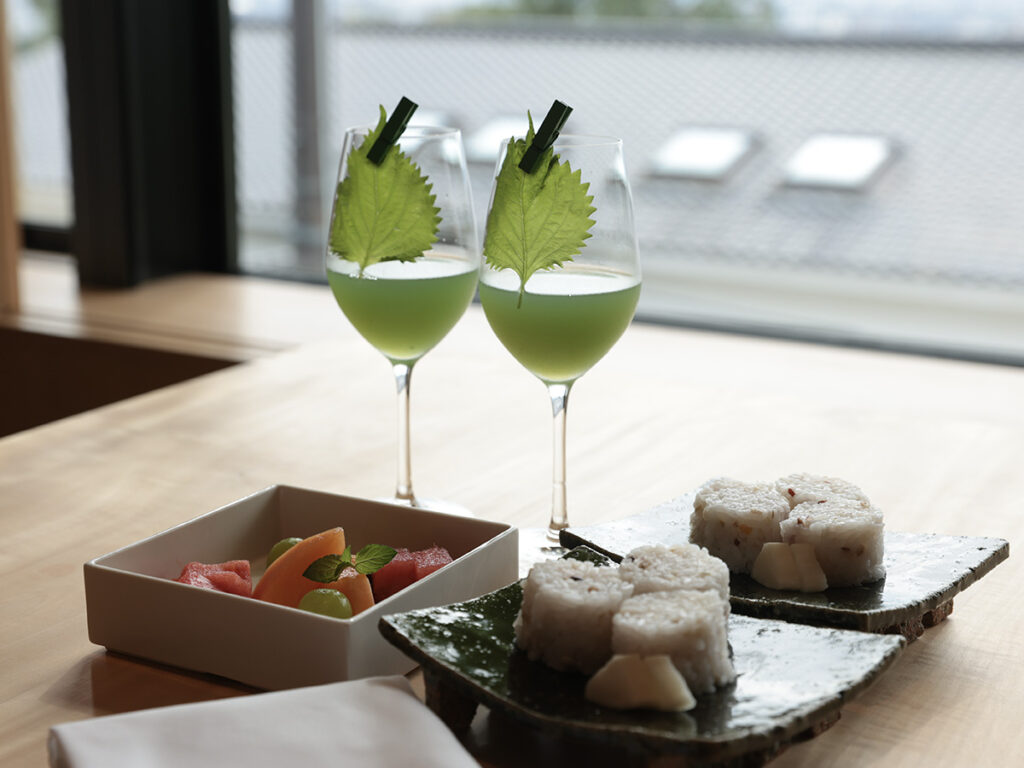
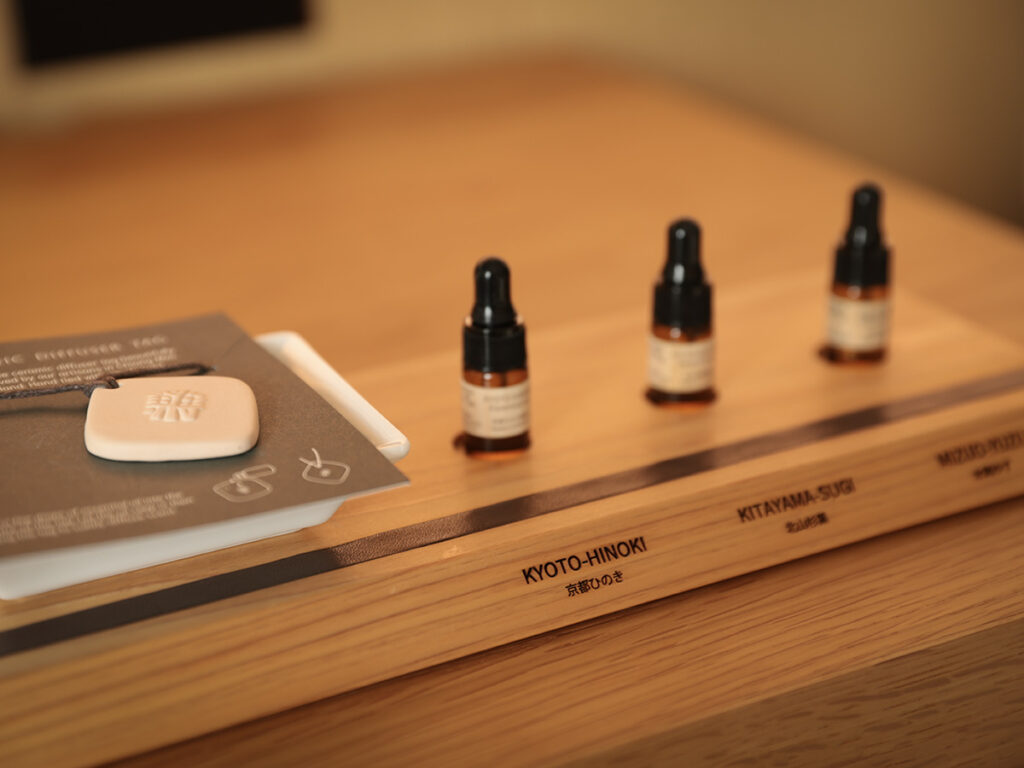
The Wellness Room offers a seamless blend of bathroom and bedroom, creating a liberating sense of space. Thoughtful touches, from healthy welcome snacks to carefully selected aromatherapy oils, bring attentive hospitality to life in every detail.
This philosophy of “timeless yet evolving” is also reflected in the garden visible from the lobby lounge. While the stones forming the base of the lush pond are newly arranged, the stones at the far end date back to the days of Hotel Ryōzen. A venerable mountain cherry tree cherished by travelers of old stands alongside a newly planted weeping cherry, creating a harmonious welcome for today’s guests.
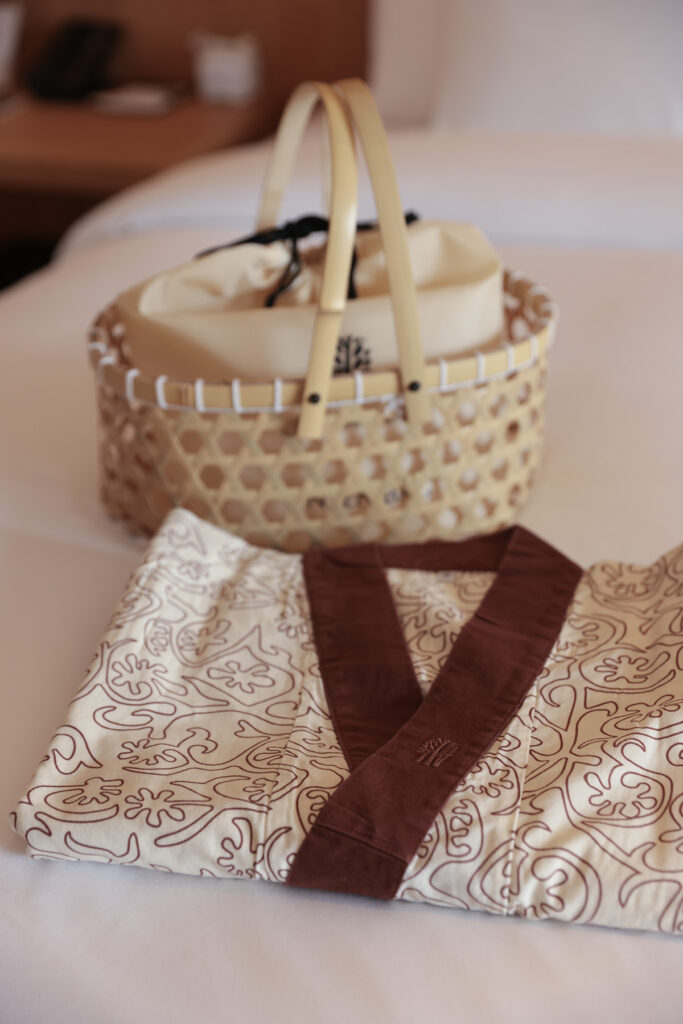

1st image: An exotic yukata inspired by the hotel logo. The specially designed woven bag comes in handy when heading to the main bath.
2nd image: The Wellness Sanctuary Room is also equipped with a yoga mat and fitness items.
Relaxing in your room is delightful, but Banyan Tree is best known for its world-class spa, a hallmark of the resort experience. At its heart is a holistic philosophy rooted in Eastern medicine and Asian traditions, designed to harmonize mind and spirit. Treatments using natural oils and herbs gently awaken the senses, offering a deeply restorative experience.
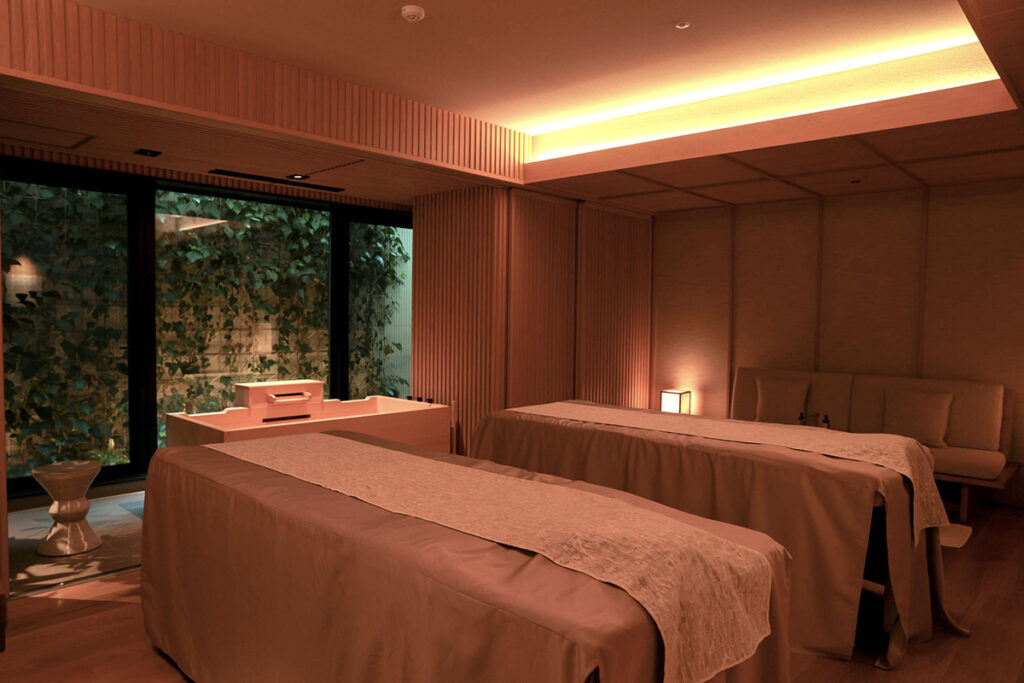
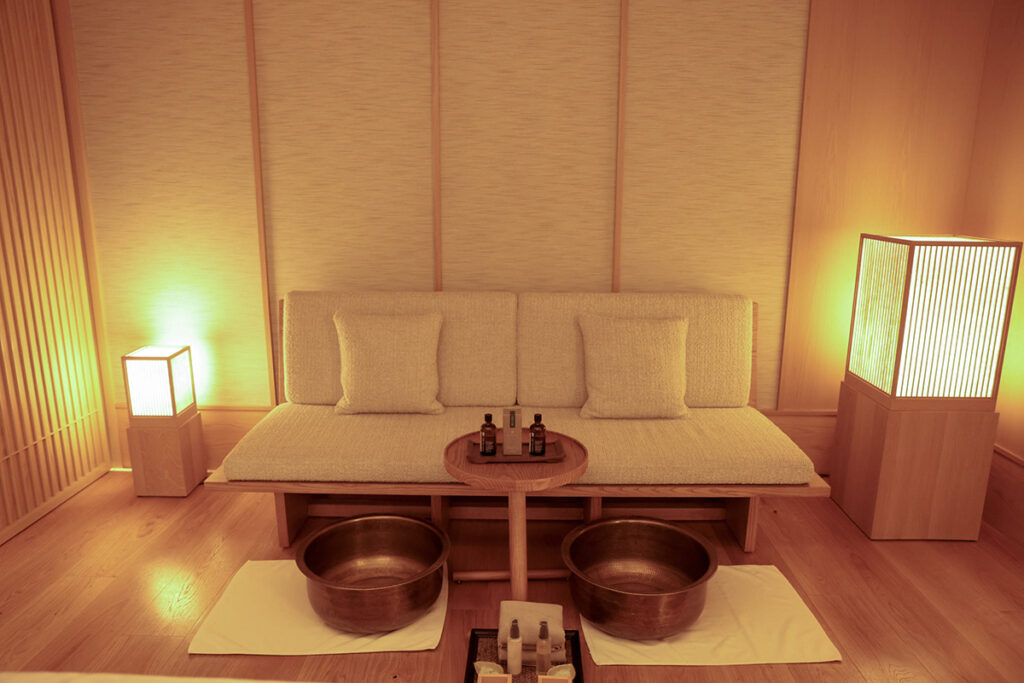
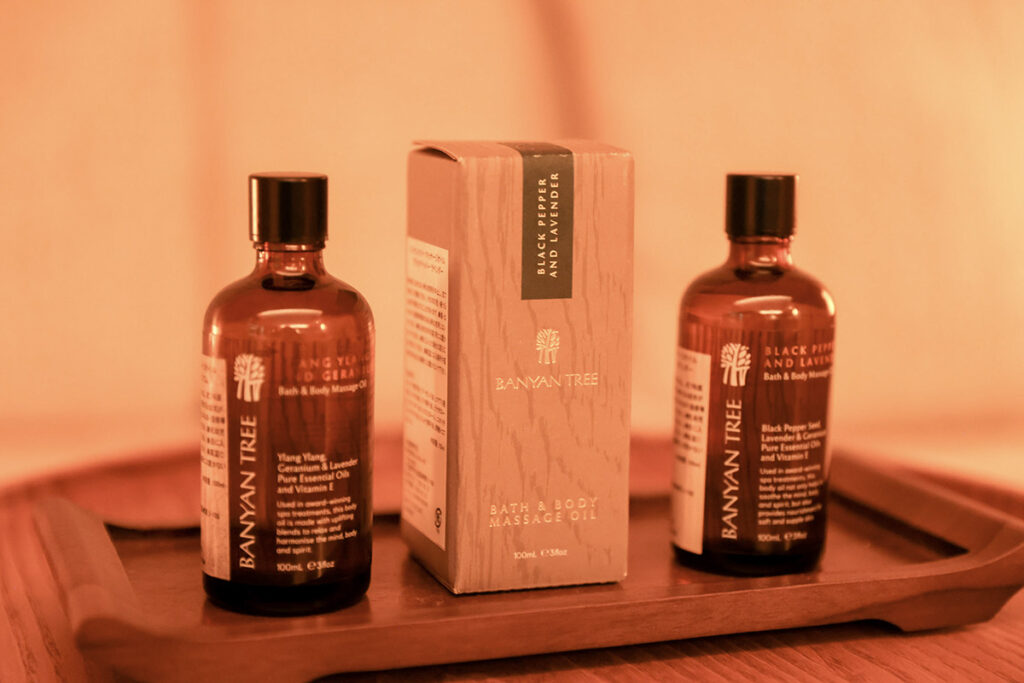
For a moment of relaxation before dinner, guests seeking deeper rejuvenation are encouraged to visit the Banyan Tree Spa.
The extensive menu is another reason guests return again and again. Signature offerings include the Banyan Tree Signature Massage, which blends techniques from across Asia, and the Thai Herbal Compress, where warmed herbal pouches are applied with gentle pressure. These original treatments transform a pre-dinner moment into an indulgent time of relaxation.
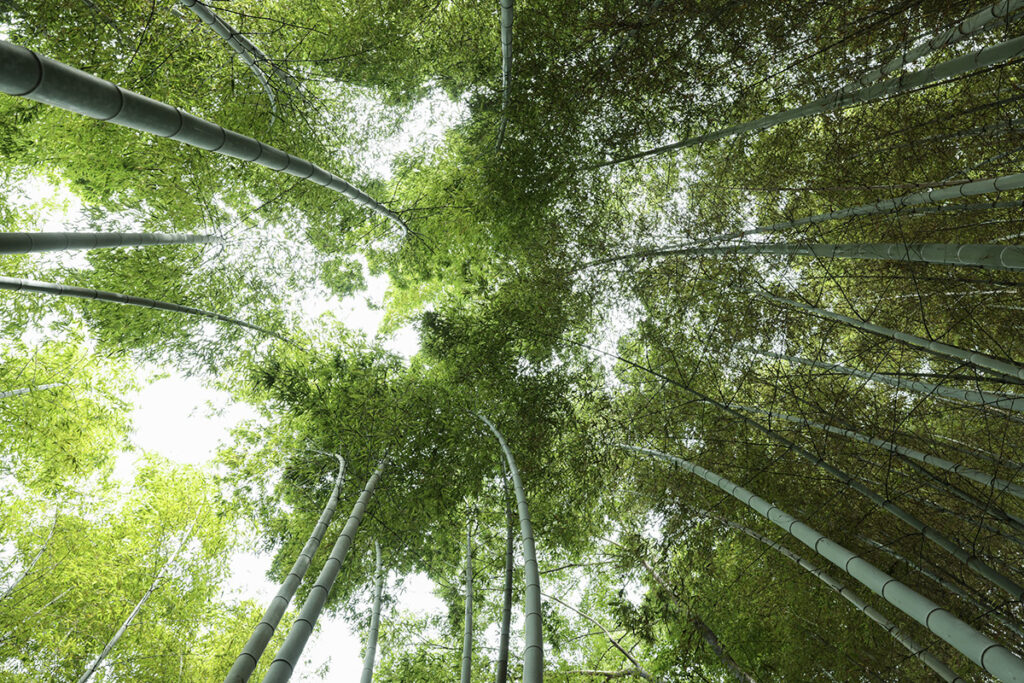
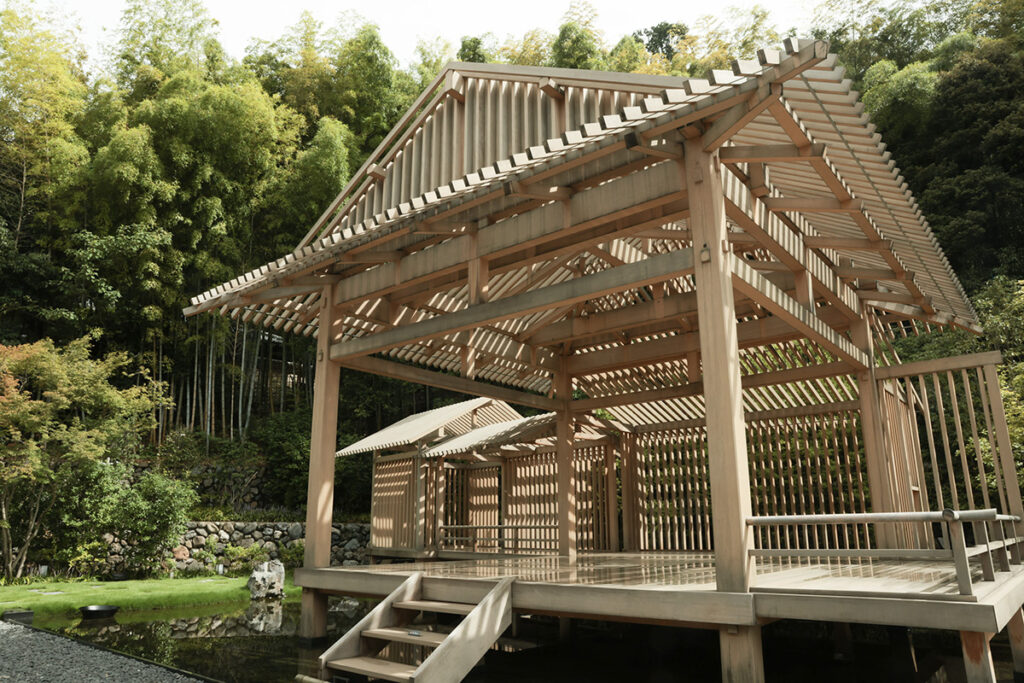
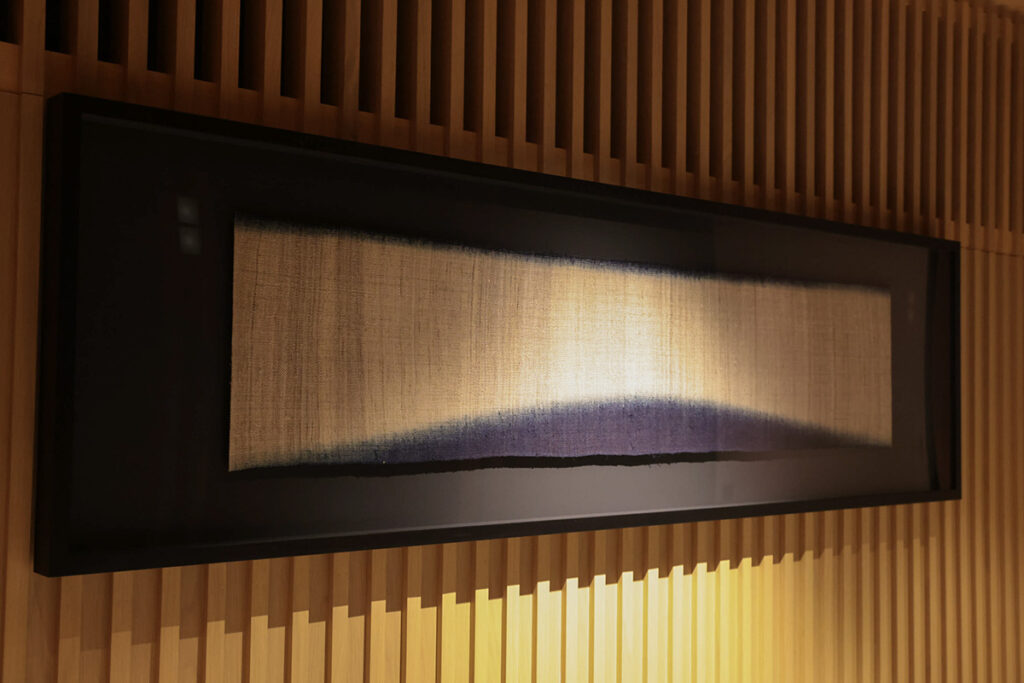
1st image: A walking path on the grounds leads to a serene bamboo grove.
2nd image: The Noh stage floating on the water, designed by Kengo Kuma, hosts live performances a few times each year.
3rd image: From the indigo-dyed artworks by Kyoto-based textile artist Shioko Fukumoto to countless other pieces, the hotel is filled with embodiments of Japanese beauty.
The memories of travel often lie in the atmosphere of a place and the food it offers, a sentiment anyone can appreciate, not just devoted foodies. Exploring an unfamiliar destination in search of delicious flavors can often lead to moments like discovering tableware that makes each dish look even more enticing. With that sense of anticipation, I visited the signature dining restaurant, Kappo Ryōzen.
That evening’s kaiseki meal was inspired by the theme of the moon. The appetizers, arranged to evoke a full moon, featured seasonal autumn ingredients such as pacific saury sushi, ginkgo nuts, and mukago. Lifting the lid of the soup revealed vivid chrysanthemums that seemed to radiate moonlight. The course continued with indulgent dishes like Wagyu fillet steak and steamed tilefish wrapped in yuba, concluding with matsutake mushroom rice, fluffy and aromatic from the clay pot in which it was cooked.
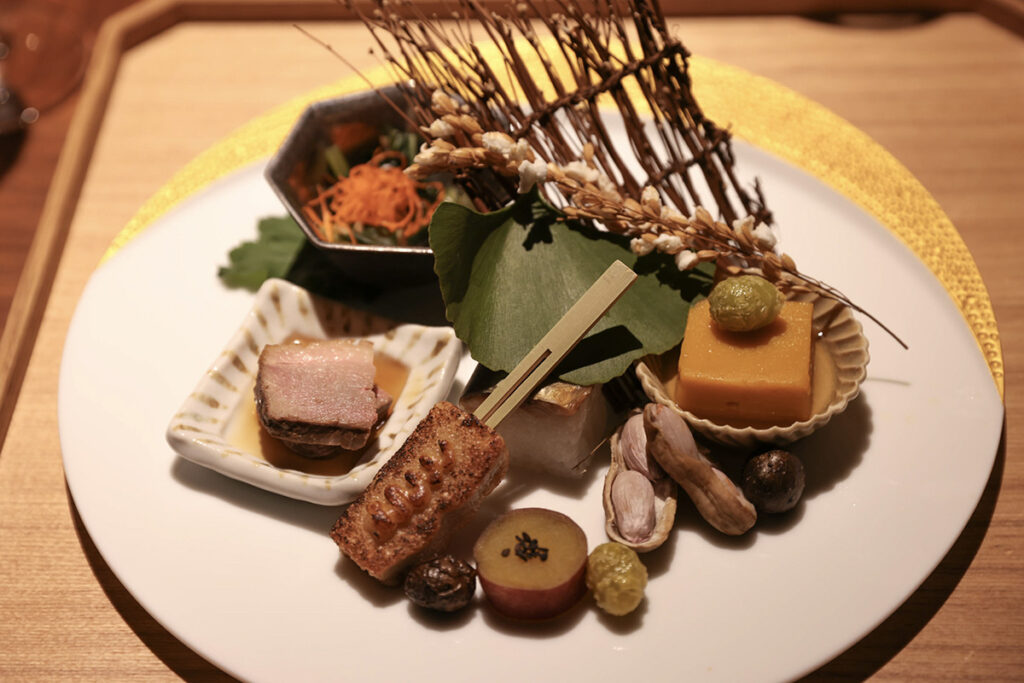
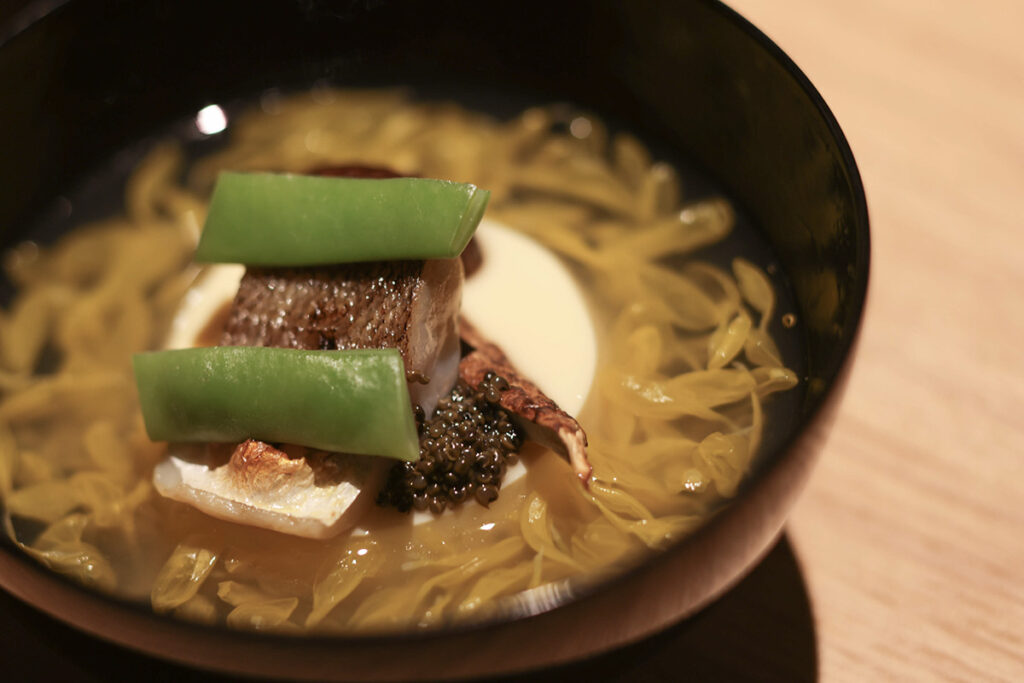
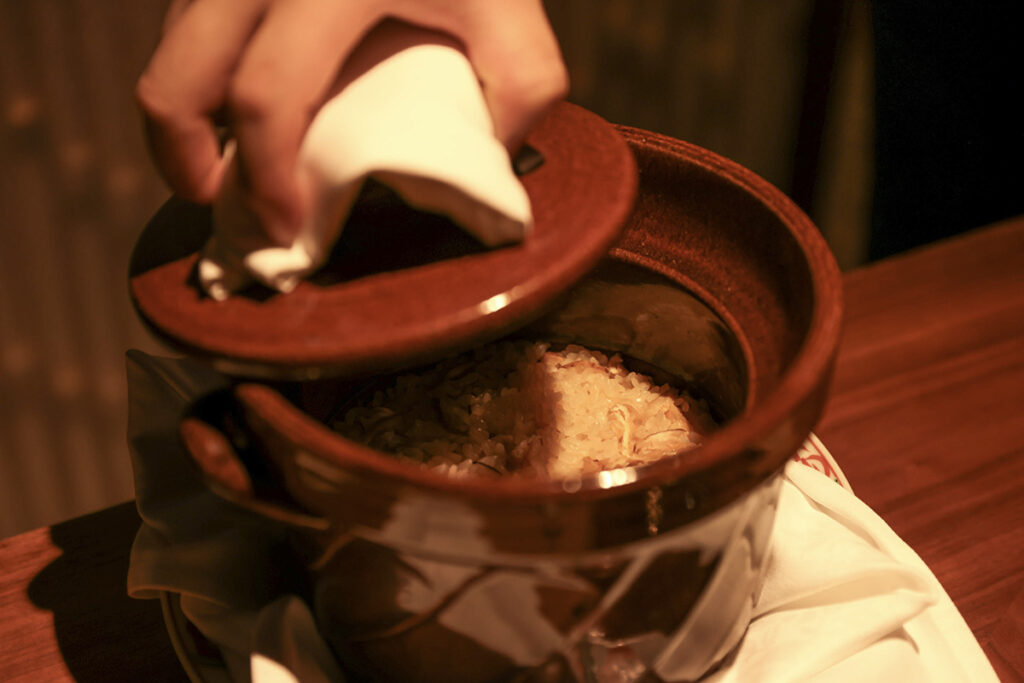
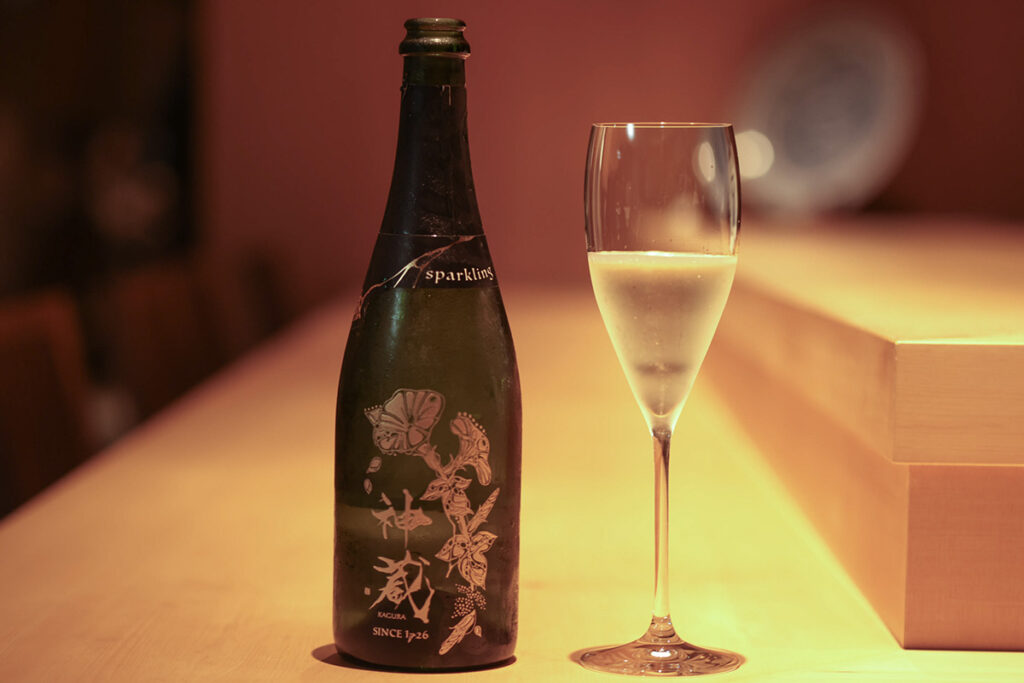
Sake pairings can be arranged to complement the meal, with most ingredients and seasonings sourced from Kyoto.
*The course shown in the photo was served until September.
After dinner, I visited BAR RYOZEN, which offers an extensive menu focused on Japanese sake, including local brews from Fushimi, Kyoto. With an original cocktail in hand, I took a moment to unwind and reflect on the day, passing through the cypress gate into a gentle, contemplative mood.
Seasoned travelers who have visited Kyoto many times say this hotel offers a side of the city they have never experienced before, and it lived up to that reputation in every way. From the ethereal bamboo grove and the works of Kyoto-based artists that express quiet individuality, to the innovative yet subtly mystical Noh stage, the world-class spa treatments, and the deeply satisfying kaiseki cuisine, the stay was completely rejuvenating for both body and mind. It goes without saying that even the next morning after your stay, the lingering sense of serenity is sure to stay with you.
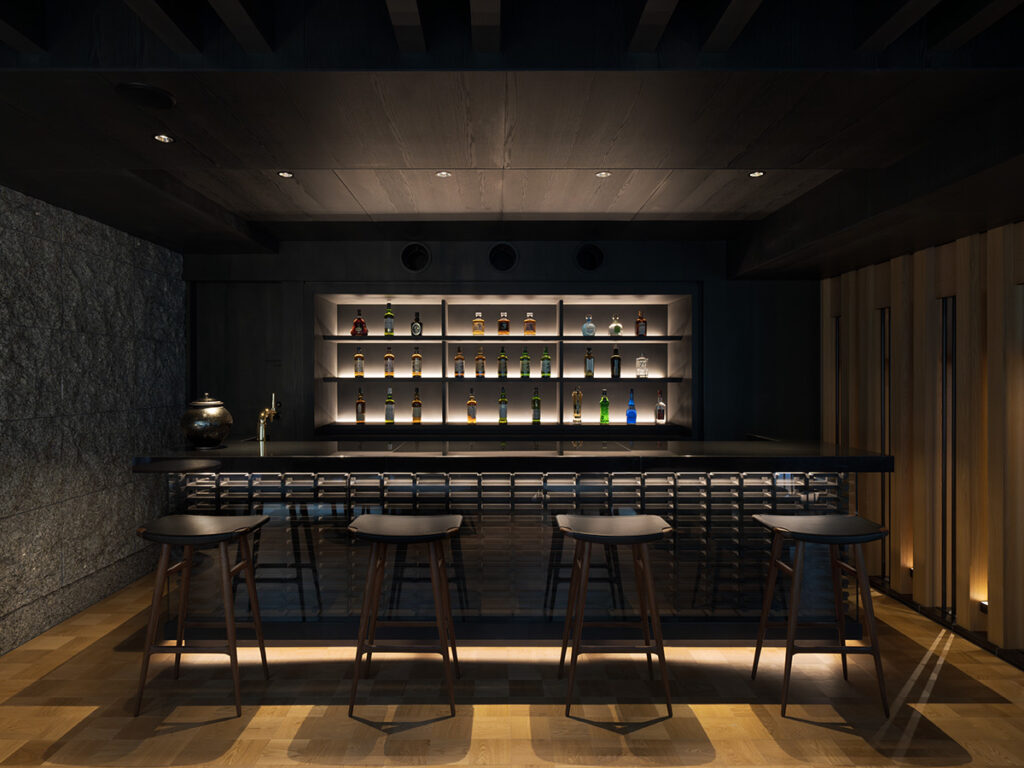
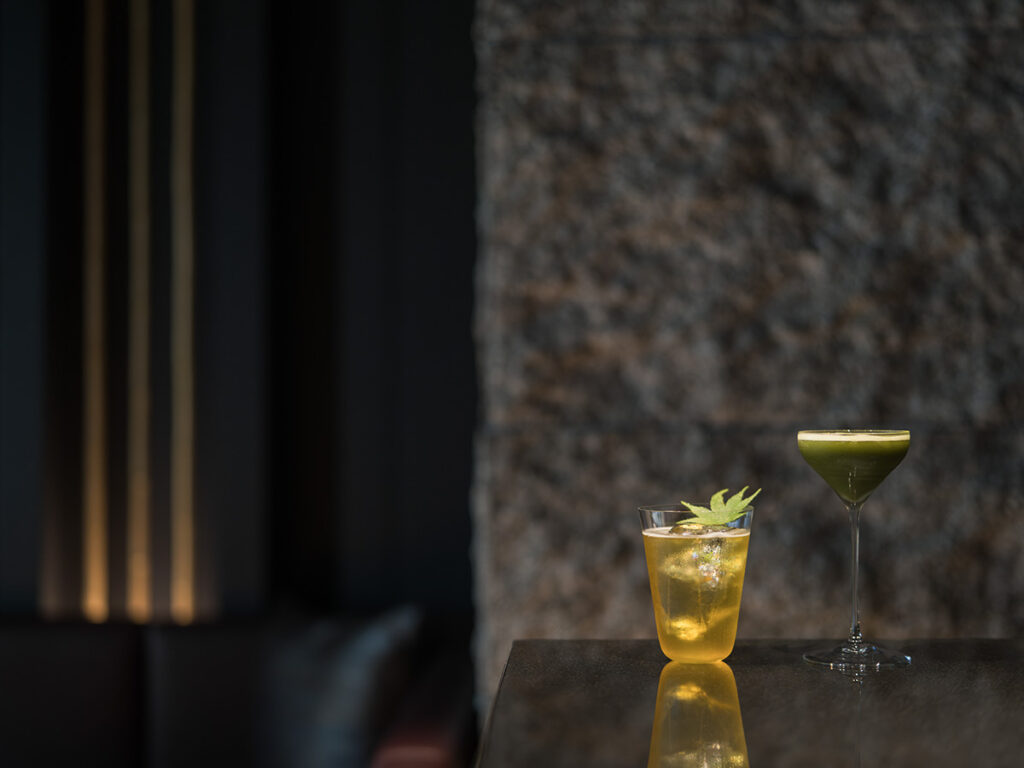
BAR RYOZEN exudes hideaway-like atmosphere, with a calm sense of serenity
Banyan Tree Higashiyama Kyoto
Address: 7 Seikanji Ryōzen-chō, Higashiyama-ku, Kyoto
Phone: +81-75-531-0500
Official website: https://www.banyantree.com/japan/kyoto






